Digital Electronics
Digital Electronics: Overview
This Topic covers sub-topics such as Logic Gates, Truth Table in Logic Gates, XNOR Gate, Analogue Signals, Digital Signals, Types of Signals, And Gate using Diode, Transistor NOT Gate, The AND Gate, The OR Gate, The NOT Gate and, The NAND Gate
Important Questions on Digital Electronics
The same input signal is applied to both the (input) terminals of a given logic gate.
If the output is the(i) same as the (common) input signal
(ii) inverted with respect to the (common) input signal,
Identify the logic gate/s involved in each case.
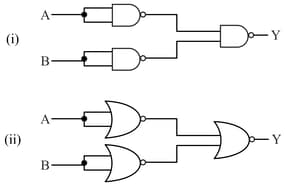
Write down the output at for the inputs and

Identify the logic gates marked and in the given logic circuit.
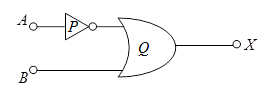
Identify the logic gates marked P and Q in the given logic circuit.

(i) Identify the logic gates marked P and Q in the given logic circuit.
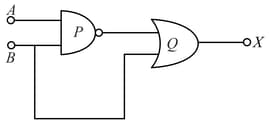
The inputs A and B are inverted by using two NOT gates and their outputs are fed to the NOR gate as shown below.
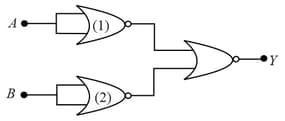
Analyse the action of the gates (1) and (2) and identify the logic gate of the complete circuit so obtained.
What is the difference between analog and digital signal?
Show that this electrical circuit is analogous to Gate.
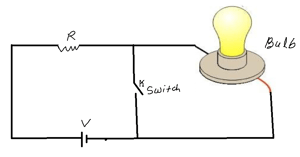
Discuss the operation of not gate by using electrical switches, bulb, resistor and battery.
What are analog and digital signals?
Minimum numbers of gates that are required for gate is four.
How many gates are required for gate?
How many minimum gates are required to obtain gate:
How many minimum gates are required to obtain gate:
The XNOR logic gates are used in _____ detecting circuits which are to detect Odd parity or even parity bits in digital data transmission circuits.
The expression of XNOR operation between variables A and B is represented as A ⊙ B. Now again, the truth table is satisfied by the equation AB + ĀB ̅. Hence, it is proved that A ⊙ B = AB + ĀB ̅.
How the switches, battery and bulb are connected for the demonstration of working of OR gate?
In the formation of a two-input OR gate using two diodes, negative terminal of one diode is connected to the positive terminal of another diode.

